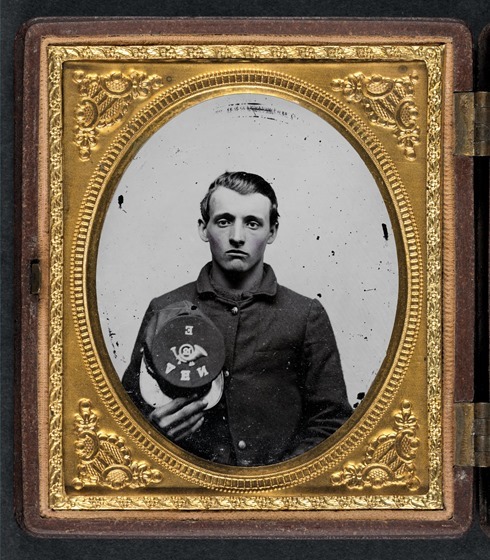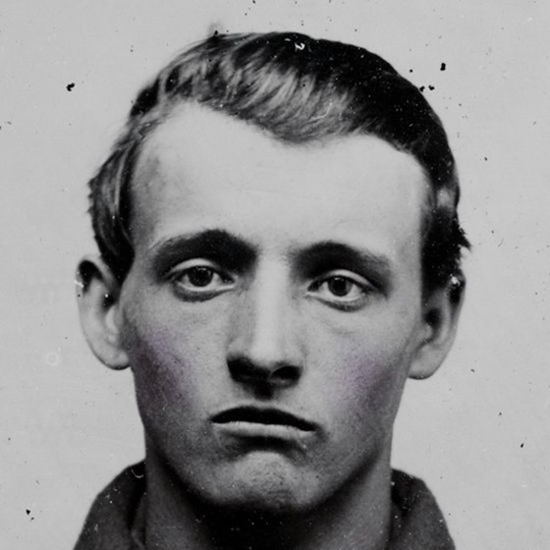November 13.— A skirmish took place near Natchez, Miss., between company H, of the Seventy-first Illinois regiment, and a few volunteers of the Sixth Mississippi regiment of loyal colored troops, and the rebel cavalry under Adams and Mosby. The circumstances are as follows: The wagons of the above command were sent out for forage, the company just designated was detailed as an escort, and left camp at seven A.M. After proceeding about one mile and a half a small force of rebels was seen, the company halted, and a messenger was despatched to inform the commanding officer, and report for instructions. Immediately on receipt of the news, Colonel Smith took the camp-guard and proceeded out on the Washington road, came up to where the foraging party had halted, and ordered it forward. [It is necessary here to state that this road leads to a village, bearing the same name, some six miles distant from this place, and two miles out it intersects the Palestine road, both of which run quite close together for a mile or more.] Both commands marched on to the “forks,” when it was decided that Captain O. H. Hitchcock, with his company, should proceed with the train toward Palestine, as was originally intended. Colonel Smith, taking the guard, followed the other road, and after marching more than a mile ordered a halt, and threw out a picket still farther on, as the rebels had been there but a few moments before. Presently a volley was heard, then another, and still another. He immediately “doublequicked” his men back, but arrived too late to participate in the engagement. Lieutenants Richards and Green, who were some distance in advance of the train, on horseback, met a squad of eight or ten cavalry coming around a bend in the road at full speed. They therefore fell back, hotly pursued by the rebels, who, when they came, in sight of the party immediately fled, and on meeting their comrades, they all joined and came back, and found the colored troops prepared to give them battle. Captain Hitchcock, not knowing the strength of his opposers, fell back a short distance, and the enemy rallied and charged furiously again. The rebel captain ordered Hitchcock to surrender, firing at the same time his revolver at Corporal John Heron, who dropped unhurt to his knees, and sent a ball through the miscreant’s breast, which proved fatal. Rebel citizens state that the opposing force numbered fifty men, and acknowledge their loss to be one captain, sergeant, and two privates killed, and eight wounded. The Union loss was as follows:
Killed—George Diegs, company H; Lewis Taylor, company H; Peter Grant, company H; Samuel Moden, company G. Wounded—William Gallin, company B; Henry Brown, company H; Mil Beckford, company H; William Hegdon, company H; Zeno Callahan, company H; Duncan Turner, company H; John Bodly, company H.
—John C. Crane, acting quartermaster at Nashville, Tenn., in a note to Andrew Johnson, Governor of that State, says:
“The bearer, (colored,) Jane Woodall, is my house-servant. She is a slave, claimed by Christopher Woodall, a resident of Tennessee. It is said that he is disloyal, and on a previous occasion the military authorities prevented him from taking her.
“Has Mr. Woodall any right, under the President’s Proclamation, and military law, to take this woman?
“It strikes me not, as we have taken possession of rebel property without compensation. Requesting your decision in the premises, I am, Governor, very respectfully, your obedient servant.”
The governor’s response.
Executive Office
“Nashville, Tenn. November 18,1863.
“Respectfully returned. If the girl referred to within is willing to return with Mr. Woodall, she should be allowed to go, but, if not willing, she will not be compelled to go with him. “Andrew Johnson,
“Military Governor.”
—In accordance with an order from the War Department, Major-General John A. Logan surrendered his command of the Third division of the Seventeenth army corps. In addressing the officers and soldiers of the different brigades, he reminded them of the history the division had made for itself—a history to be proud of; a history never to be forgotten; for it is written as with a pen of fire dipped in ink of blood on the memories and in the hearts of all. He besought them always to prove themselves as loyal in principle, as valiant in arms, as their record while under his command would show them to have been; to “remember the glorious cause you are fighting for, remember the bleaching bones of your comrades killed on the bloody fields of Donelson, Corinth, Champion Hill, and Vicksburgh, or perished by disease during the past two years of hardships and exposure—and swear by these imperishable memories never, while life remains, to prove recreant to the trust high heaven has confided to your charge.” He assured them of his continued sympathy and interest in their wellbeing, no matter how great a distance might separate them; and closed by heartily recommending them to their future commander, his own companion in arms, and successor, Brigadier-General Leggett.
 Note – This image has been digitally adjusted for one or more of the following:
Note – This image has been digitally adjusted for one or more of the following:





